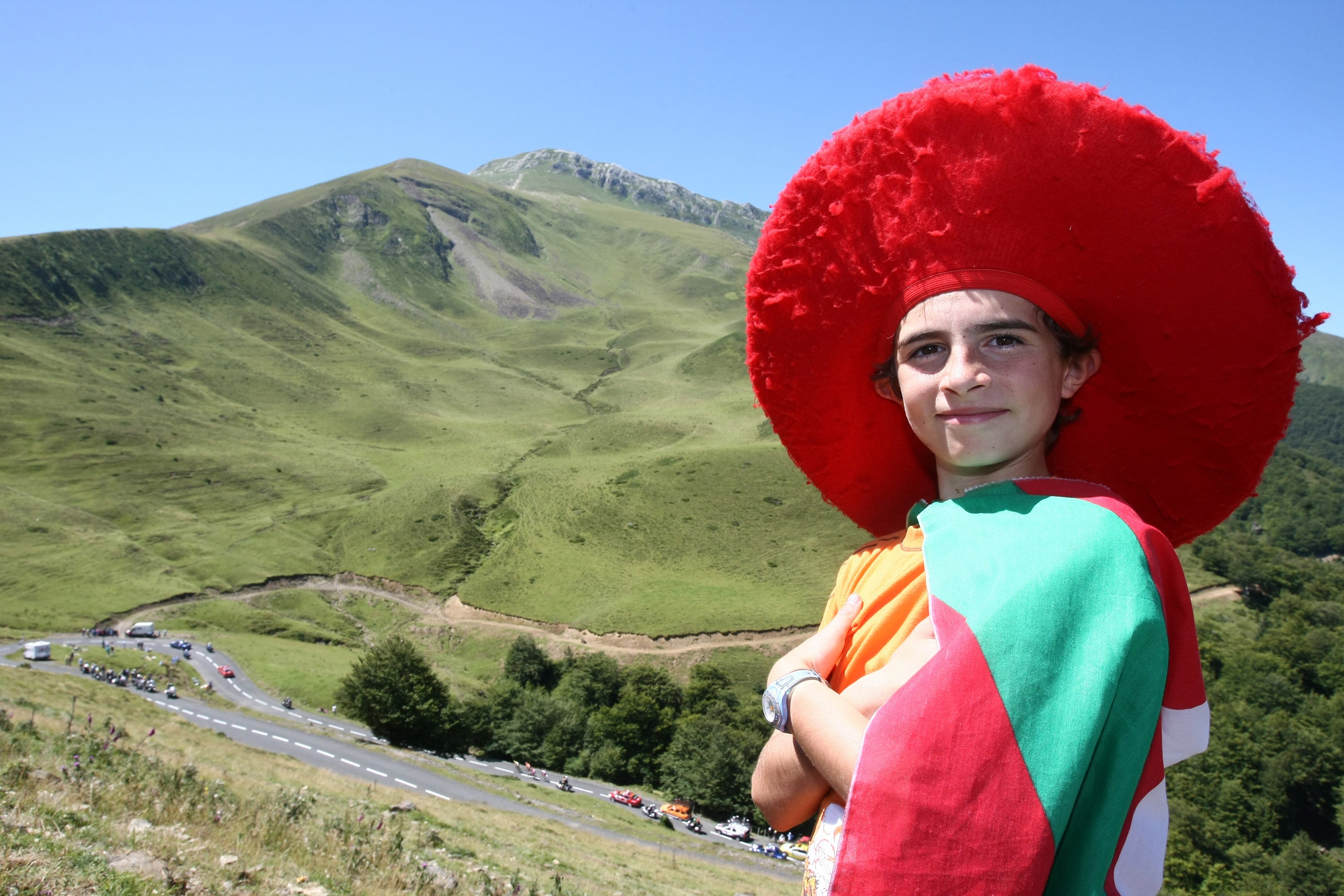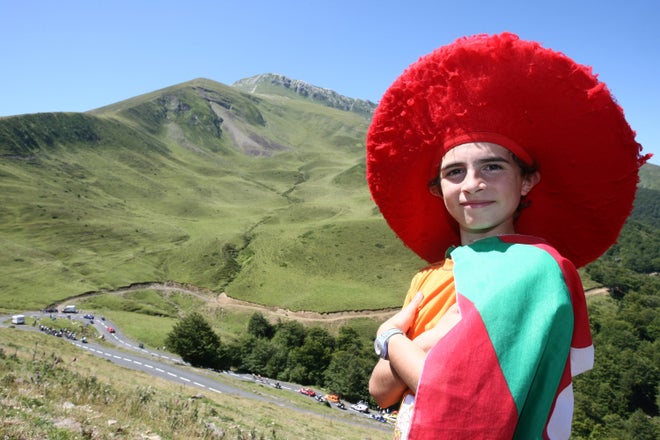Basque fans get thrill of the Vuelta after 33 years

A Basque cycling fan at the 2007 Tour de France. AFP PHOTO / FRANCK FIFE

BILBAO, Spain (AFP) — When the Vuelta a España reaches Bilbao on Friday, the cycling-mad Basques will finally get to see the Vuelta in their own land after 33 years’ absence.
Since 1978, when Basque separatists disrupted the race to the point where one stage had to be abandoned, it has never passed through the region. Thirty-three editions later, the organizers, taking advantage of a more stable political situation and a receding threat from the armed separatist group ETA, decided to right the wrong and bring the Vuelta back to a land where people have cycling in their heart and soul.
On Friday, the Vuelta will pass along the Gran Via Don Diego de Haro, one of the main thoroughfares in the industrial city of Bilbao and which has been decked out for the occasion.
On Saturday, it is the turn of the regional capital, Vitora.
“This return is doubly satisfying,” said Javier Guillen, the director of the Vuelta. “First of all because the Basque Country has some of the most avid cycling fans in the world.
“And it’s also a way for the Vuelta to revisit its own history, given that the newspaper ‘El Correo Espanol/Pueblo Vasco’ organized the Vuelta for years until 1978.”
Cycling fans in the region, such as Txomin Perurena, a former professional rider who was the last to win in the Basque city of San Sebastian, are ecstatic. But the Vuelta runner-up in 1975 also has mixed feelings.
“I am very happy about this return. But I’m also sad that the Vuelta has waited so long to pass through this land again,” he said. “We shouldn’t delude ourselves. This return could have happened much earlier. The proof is that professional football teams play every weekend in the Basque Country and nothing ever happens to them.”
Guillen said the 33-year gap wasn’t just because of security concerns. “If we return to the Basque Country, it’s not because there is better security this year,” he said. “It’s a conjunction of things. There have been requests from Basque towns to host the Vuelta for the past 33 years, but it’s in 2011 that everything came together to bring back the Tour: the calendar, the organisation, the course.”
Basque fans may have one small regret: no Basque rider is sufficiently well placed to win this year’s event, which ends on Sunday in Madrid.
Igor Anton of Basque team Euskaltel, who was one of the pre-race favorites, has failed to make a strong showing. But the Basque public could still have some compensation if Anton or compatriot Mikel Nieve manage to win a stage on their home turf.
“But believe me, the return of the Vuelta here is enough to make us happy,” said Perurena.